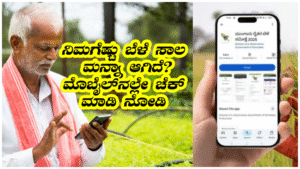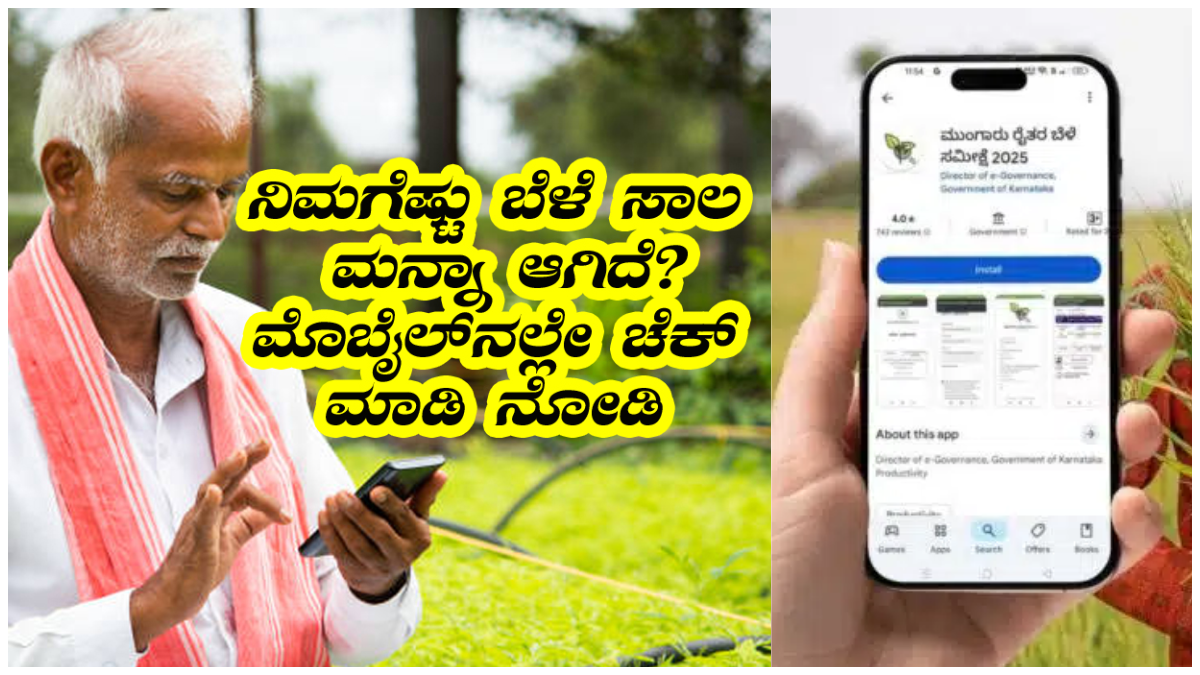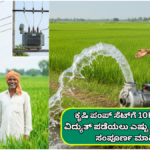Introduction
The Mungaru season (southwest monsoon) is one of the most important agricultural periods in Karnataka. During this season, farmers sow a wide range of crops such as paddy, maize, ragi, pulses, and sugarcane. To ensure accurate agricultural planning and support for farmers, the Government of Karnataka conducts a Mungaru Crop Survey every year.

The Mungaru Farmers’ Crop Survey 2025 aims to collect real-time data on cultivated land, crop varieties, sowing patterns, and farmer details. This information plays a key role in designing policies, providing subsidies, and managing relief during natural calamities.
1. Objectives of the 2025 Crop Survey
The main goals of the Mungaru Crop Survey 2025 are:
- ✅ To build a digital record of all crops grown during the monsoon season.
- ✅ To identify the exact area under cultivation for each crop.
- ✅ To help the government offer accurate insurance coverage and compensation during droughts or floods.
- ✅ To improve planning for procurement, storage, and market linkages.
- ✅ To make farmer-related data more transparent and easily accessible.
The survey is part of Karnataka’s broader effort to digitize agriculture and create a farmer-friendly governance system.
2. Digital Data Collection and Technology Use
Unlike older paper-based surveys, the 2025 crop survey uses mobile applications and GPS mapping to collect data more efficiently. Village-level officers, agricultural assistants, and trained enumerators visit farms and enter details directly into the Kharif Crop Survey App, which is available for Android devices.
Key Features of the Digital Survey:
- 📌 GPS location tagging to verify farm boundaries.
- 📸 Photo evidence of crops and fields.
- 👨🌾 Farmer ID linkage using Aadhaar or RTC (Record of Rights, Tenancy and Crops).
- 📝 Offline data entry in remote areas, with later synchronization.
- 🌐 Real-time monitoring by district and state-level officials.
This digitized system reduces errors, ensures transparency, and speeds up policy decisions.
3. Benefits for Farmers
The Mungaru Crop Survey brings several direct benefits to farmers:
- Accurate crop insurance coverage
- Farmers who are listed in the survey are more likely to receive quick compensation in case of crop loss.
- Faster disaster relief
- When floods or droughts occur, government agencies use survey data to assess damage and distribute relief funds effectively.
- Better market support
- Knowing which crops are grown where helps authorities plan procurement and price support more efficiently.
- Access to subsidies and schemes
- Many government schemes rely on crop survey data to identify eligible farmers for fertilizer subsidies, seed support, and financial assistance.
- Transparency and trust
- With data stored digitally, farmers can check and verify their crop information, reducing disputes and corruption.
4. Role of Local Officials and Farmers
The success of the 2025 survey depends on coordination between farmers and local authorities:
- Village accountants and surveyors visit fields to record crop details.
- Farmers must cooperate by providing accurate information about their land, crops, and ownership.
- Panchayat-level monitoring ensures the data collected is reliable.
- Special awareness drives are being conducted to inform farmers about the importance of participation.
Farmers can also self-report their crop information through the official Kharif Crop Survey mobile app, which makes the process faster and more transparent.
5. Challenges in Implementation
Despite technological improvements, the survey faces some practical difficulties:
- 🌧 Unpredictable monsoons may affect sowing dates, making timely surveys difficult.
- 🧭 Remote and hilly regions sometimes have poor internet connectivity, delaying data uploads.
- 🧑🌾 Some farmers are not fully aware of the digital process, leading to incomplete information.
- 📋 Land ownership disputes or outdated RTC records can cause mismatches in data.
The government is addressing these issues by increasing field staff, conducting awareness campaigns, and allowing offline data entry with later synchronization.
6. Importance of Accurate Data for Policy
Accurate crop data from the Mungaru survey is vital for:
- Disaster management: Quick assessment of flood or drought damage.
- Loan and insurance programs: Linking crop data with agricultural credit.
- Market planning: Preventing glut or shortage of specific crops.
- Budget allocation: Ensuring fair distribution of funds and subsidies.
- Climate adaptation strategies: Identifying shifting crop patterns due to climate change.
This survey acts as the backbone of Karnataka’s agricultural decision-making.
7. Way Forward
To make the Mungaru Crop Survey even more effective in the coming years, the following steps are recommended:
- Strengthen digital literacy among farmers so they can self-report without depending entirely on field staff.
- Improve app performance and provide language support in Kannada for easier use.
- Integrate survey data with weather forecasts to predict and manage risks better.
- Establish grievance redressal mechanisms for farmers to correct wrong entries.
- Regular training for officials to maintain consistency and accuracy in data collection.
Conclusion
The Mungaru Farmers’ Crop Survey 2025 represents a major step forward in building a transparent and efficient agricultural data system in Karnataka. By combining technology with farmer participation, the government can design better crop insurance schemes, improve relief distribution, and support sustainable farming.
Accurate surveys ultimately benefit everyone — farmers get timely support, the government can plan better, and markets become more stable. As Karnataka faces changing climate conditions and market challenges, such modern surveys will play a key role in strengthening the state’s agricultural backbone.





















